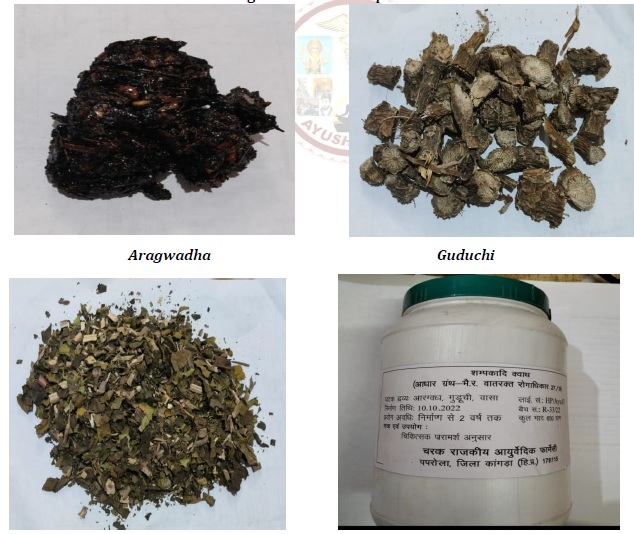A Clinical Study to Evaluate the Effect of Shampakadi Kwatha in the Management of Vatarakta w.s.r. to Hyperuricemia
DOI:
https://doi.org/10.47070/ayushdhara.v10i5.1397Keywords:
Shampakadi Kwatha, Vatarakata, HyperuricemiaAbstract
In the rapidly changing and modernizing era, human population is becoming vulnerable to many metabolic disorders related with lifestyle and food habits. Vatarakta is one of them which is caused by union of vitiated Vata Dosha and morbid Rakta Dhatu. In modern science, it resembles the symptomatology of gout which is caused by hyperuricemia. The epidemiology of hyperuricemia is different from that of gout. Gout is only present in 10% of people with hyperuricemia. The purpose of this study was to find out an effective and well accepted drug with minimal or no complications for this illness. 45 patients who were diagnosed with Vatarakta w.s.r. to hyperuricemia were allocated randomly into three groups. The trial drug i.e., Shampakadi Kwatha 50ml twice a day was given to 15 patients of Group I, the standard drug Allopurinol 100mg twice a day was given to 15 patients of Group II and both Shampakadi Kwatha 50ml twice a day and a standard anti-hyperuricemic drug allopurinol 100mg twice a day was given to 15 patients of Group III for duration of 6 weeks. Subjective parameters were assessed before and after the completion of trial. Data obtained during the trial was tabulated and statistically analysed.
Downloads

Downloads
Published
Issue
Section
License
Copyright (c) 2023 AYUSHDHARA

This work is licensed under a Creative Commons Attribution-NonCommercial-ShareAlike 4.0 International License.


